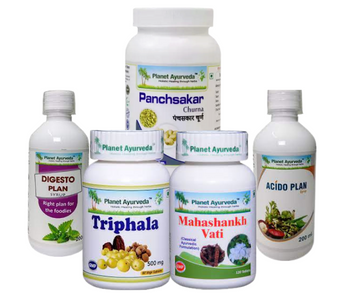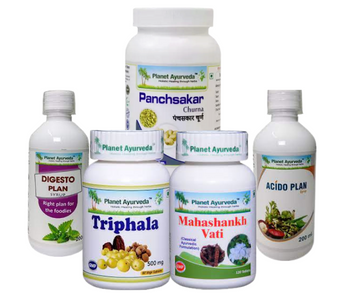ABSTRACT
A thick peritoneal membrane that encircles the intestine is a symptom of the rare condition known as cocoon syndrome. It could be the primary cause or a complication of other factors, such as prior abdominal surgery. The inflammatory process is the main cause of it. The primary signs and symptoms of cocoon syndrome are abdominal pain and intestinal blockage. A rare cause of small intestine obstruction, abdominal cocoon syndrome is described as the idiopathic encapsulation of the colon within a fibrocollagenous membrane. In this article, we discuss cocoon syndrome.
INTRODUCTION OF COCOON SYNDROME
A rare disorder called cocoon syndrome results in a minor intestinal blockage. It is also known as sclerosing encapsulating peritonitis or encapsulating peritoneal sclerosis (EPS), and it causes a fibro-collagenous peritoneal membrane to surround the small intestinal loops. Small intestine obstruction is an uncommon condition caused by the idiopathic partial or complete encapsulation of the bowel within a fibro collagenous membrane, known as abdominal cocoon syndrome (ACS).

CAUSES OF COCOON SYNDROME
There are the following causes that are associated with cocoon syndrome:
- Peritoneal dialysis
- HIV
- Liver transplant
- IdiopathicTuberculosis
- Abdominal trauma
- Neuroendocrine tumours
- Generalised inflammation of the peritoneum
- Hemodialysis
- Drugs (beta blockers)
- Protein S deficiency
SYMPTOMS OF COCOON SYNDROME
- Fever
- Vomiting
- Loss of appetite
- Abdominal distension
- Fatigue
- Loss of weight
- Ascites with hypoproteinemia
- Constipation
- Abdominal pain
- Nausea
DIAGNOSIS OF COCOON SYNDROME
- Ultrasonography
- CT- scan
- X- ray
- MRI
- Laparotomy
TREATMENT OF COCOON SYNDROME
- Correction of the underlying cause
- Prevention of encapsulating peritoneal sclerosis
- Medical therapy
- Surgical treatment
AYURVEDIC ASPECT OF COCOON SYNDROME
In Ayurveda, cocoon syndrome is related to vata vyadhi. The vata dosha in this illness was merely made worse. In this, vata vitiated due to causative factors and increased vata dosha may result in inflammation of the membrane of the intestine and may result in cocoon syndrome.
CAUSATIVE FACTORS OF VATA VYADHI
- Falling from a certain height
- Excessive strain
- Injury due to fighting
- Carrying heavy loads
- Performing heavy exercise
SYMPTOMS OF VATA VRIDHI
- Jwara (Fever)
- Vaman (Vomiting)
- Alasya (Fatigue)
- Anaha (Abdominal distension)
- Aruchi (Loss of appetite)
- Mala avrodh (Constipation)
- Jalodhar (Ascites)
- Loss of weight
- Abdominal pain
- Nausea
- Snehana (Oleation therapy)
- Swedana (Induced sweating)
- Abhyanga (Massage)
HERBAL REMEDIES BY PLANET AYURVEDA FOR COCOON SYNDROME
Planet Ayurveda is a GMP-certified Ayurvedic clinic that creates a variety of herbal treatments for the treatment of those who are ill as well as the prevention of various health problems. Every formulation created by Planet Ayurveda is free from any kind of resin, colour, or ingredient. These treatments are completely natural and were created under the supervision of M.D. Ayurvedic doctors, and the formulations had no negative side effects. Planet Ayurveda offers a variety of herbal remedies for the Treatment of Cocoon Syndrome, which we will discuss further in this article in detail.
PRODUCT LIST
- TRIPHALA CAPSULES
- PANCHSAKAR CHURNA
- DIGESTOPLAN SYRUP
- ACIDOPLAN SYRUP
- MAHASHANKH VATI


1. TRIPHALA CAPSULES
Triphala capsules are multi-herbal capsules that are formulated by Planet Ayurveda with the help of Terminalia chebula (Haritaki), Bibhitaki (Terminalia bellerica), and Emblica officinalis (Amalaki). It helps in the improvement of intestinal health and the removal of toxins from the body. It also strengthens the immune system and has antioxidant and rasayana qualities. Haritaki, which is incorporated into this capsule, helps to strengthen the digestive system and boost metabolism. Amalaki is a high source of vitamin C, which promotes liver health and immunity. Bibhitaki is well known for its liver health benefits. Triphala therefore helps digestion, eliminates toxins, and enhances immunity.
Dosage: Take 1 capsule twice daily.
2. PANCHSAKAR CHURNA
Panchsakar churna is a multi-herbal formulation that is formulated by Planet Ayurveda with the help of Zingiber officinale (Sonth), Senai (Cassia angustifolia), Foeniculum vulgare (Saunf), Saindhav lavan (Rock salt), and Choti Harad (Terminalia chebula). According to the Charak Samhita, harad is the best medication for treating sprue, indigestion, constipation, abdominal gas that rises, and loss of appetite. Saunf alleviates vata and kapha and is primarily used as a digestive, appetising, and stimulating aid. It is used in a number of digestion-related ailments such as diarrhoea, dysentery, gas trouble, nausea, and anorexia. It is also beneficial in conditions involving minor coughs and colds, burning urination and halitosis.
Dosage: Take ½ teaspoon twice daily.
3. DIGESTOPLAN SYRUP
Digestoplan syrup is a multi-herbal formulation that is formulated by Planet Ayurveda with the help of Foeniculum vulgare (Saunf), Pudina (Mentha piperita), Anethum sowa (Shatapushpa), Dhanayak (Coriandrum sativum), Cuminum cyminum (Jeerak), and some other ingredients. Pudina mainly pacifies kapha and vata. Pudina is acclaimed as a stimulant, expectorant, antispasmodic, murderer of intestinal worms, and moderately analgesic plant. It is well known for its carminative, digestive, fragrant, and antiemetic properties. Jeera is a wind repellent, anti-colic, and intestinal adsorbent agent. It alleviates anorexia, abdominal distension, motion sickness, indigestion, and intestinal worms.
Dosage: Take 2 teaspoons twice daily.
4. ACIDOPLAN SYRUP
Acidoplan syrup is a multi-herbal formulation that is formulated by Planet Ayurveda with the help of Aloe barbadensis (Ghrit Kumari), Sajjikshar (Soda-bi-carb), Garcinia indica (Kokum), Pittapapada (Fumaria indica), and some other ingredients. Aloe is a digestive, carminative, anti-inflammatory, and diuretic medicine. It acts as a purgative and kills intestinal worms when given in large doses. It is also beneficial for liver and spleen disorders. It has anti-bacterial and anti-fungal action, as well as wound healing properties. Sajjikshar helps with abdominal lumps, abdominal colic pain, and worm infestation.
Dosage: Take 2 teaspoons twice daily.
5. MAHASHANKH VATI
Mahashankh vati is a multi-herbal formulation that is formulated by Planet Ayurveda with the help of Shankha bhasma (Conch shell ash), Shunthi (Zingiber officinale), Pippali (Piper longum), Rock salt (Saindhav lavan), and other ingredients. This tablet is quite beneficial in the treatment of indigestion, abdominal pain, and irregular eating habits. This medication is particularly effective in removing gas from the stomach and relieving indigestion. It is helpful for abdominal colicky pain and headaches and balances vata dosha in the body.
Dosage: Take 2 tablets twice to be chewed 20 minutes before a meal.
Contact Planet Ayurveda Support Team to provide you the costing/ordering and delivery information at - [email protected] or Call at 0172-521-4040 (India), +91-172-521-4040 (Outside India) or Whatsapp at (+91) 842-749-4030.
CONCLUSION
A thick peritoneal membrane that encircles the intestine is a symptom of the rare condition known as cocoon syndrome. It could be the primary cause or a complication of other factors, such as prior abdominal surgery. A rare disorder called cocoon syndrome results in a minor intestinal blockage. It is also known as sclerosing encapsulating peritonitis or encapsulating peritoneal sclerosis (EPS), and it causes a fibro-collagenous peritoneal membrane to surround the small intestinal loops. In Ayurveda, cocoon syndrome is related to vata vyadhi. The vata dosha in this illness was merely made worse. Increased Vata dosha may result in aches and pains. Planet Ayurveda provides some herbal remedies for the management of cocoon syndrome without causing any side effects.
Dr. Vikram Chauhan (MD - Ayurveda) is the CEO and Founder of Planet Ayurveda Pvt. Ltd. He is Author of the Book "Ayurveda - God's Manual For Healing". He is an Ayurveda Expert Serving People worldwide through all the Possible Mediums, Operating from Main Branch in Mohali, India. With his Vast Experience in Herbs and their Applied Uses, he is successfully treating Numerous Patients suffering from Various Ailments with the help of Purest Herbal Supplements, Diet, and Lifestyle, according to the Principles of Ayurveda. For More Details, visit www.PlanetAyurveda.com.
View more posts from this authorABSTRACT
A thick peritoneal membrane that encircles the intestine is a symptom of the rare condition known as cocoon syndrome. It could be the primary cause or a complication of other factors, such as prior abdominal surgery. The inflammatory process is the main cause of it. The primary signs and symptoms of cocoon syndrome are abdominal pain and intestinal blockage. A rare cause of small intestine obstruction, abdominal cocoon syndrome is described as the idiopathic encapsulation of the colon within a fibrocollagenous membrane. In this article, we discuss cocoon syndrome.
INTRODUCTION OF COCOON SYNDROME
A rare disorder called cocoon syndrome results in a minor intestinal blockage. It is also known as sclerosing encapsulating peritonitis or encapsulating peritoneal sclerosis (EPS), and it causes a fibro-collagenous peritoneal membrane to surround the small intestinal loops. Small intestine obstruction is an uncommon condition caused by the idiopathic partial or complete encapsulation of the bowel within a fibro collagenous membrane, known as abdominal cocoon syndrome (ACS).

CAUSES OF COCOON SYNDROME
There are the following causes that are associated with cocoon syndrome:
- Peritoneal dialysis
- HIV
- Liver transplant
- IdiopathicTuberculosis
- Abdominal trauma
- Neuroendocrine tumours
- Generalised inflammation of the peritoneum
- Hemodialysis
- Drugs (beta blockers)
- Protein S deficiency
SYMPTOMS OF COCOON SYNDROME
- Fever
- Vomiting
- Loss of appetite
- Abdominal distension
- Fatigue
- Loss of weight
- Ascites with hypoproteinemia
- Constipation
- Abdominal pain
- Nausea
DIAGNOSIS OF COCOON SYNDROME
- Ultrasonography
- CT- scan
- X- ray
- MRI
- Laparotomy
TREATMENT OF COCOON SYNDROME
- Correction of the underlying cause
- Prevention of encapsulating peritoneal sclerosis
- Medical therapy
- Surgical treatment
AYURVEDIC ASPECT OF COCOON SYNDROME
In Ayurveda, cocoon syndrome is related to vata vyadhi. The vata dosha in this illness was merely made worse. In this, vata vitiated due to causative factors and increased vata dosha may result in inflammation of the membrane of the intestine and may result in cocoon syndrome.
CAUSATIVE FACTORS OF VATA VYADHI
- Falling from a certain height
- Excessive strain
- Injury due to fighting
- Carrying heavy loads
- Performing heavy exercise
SYMPTOMS OF VATA VRIDHI
- Jwara (Fever)
- Vaman (Vomiting)
- Alasya (Fatigue)
- Anaha (Abdominal distension)
- Aruchi (Loss of appetite)
- Mala avrodh (Constipation)
- Jalodhar (Ascites)
- Loss of weight
- Abdominal pain
- Nausea
- Snehana (Oleation therapy)
- Swedana (Induced sweating)
- Abhyanga (Massage)
HERBAL REMEDIES BY PLANET AYURVEDA FOR COCOON SYNDROME
Planet Ayurveda is a GMP-certified Ayurvedic clinic that creates a variety of herbal treatments for the treatment of those who are ill as well as the prevention of various health problems. Every formulation created by Planet Ayurveda is free from any kind of resin, colour, or ingredient. These treatments are completely natural and were created under the supervision of M.D. Ayurvedic doctors, and the formulations had no negative side effects. Planet Ayurveda offers a variety of herbal remedies for the Treatment of Cocoon Syndrome, which we will discuss further in this article in detail.
PRODUCT LIST
- TRIPHALA CAPSULES
- PANCHSAKAR CHURNA
- DIGESTOPLAN SYRUP
- ACIDOPLAN SYRUP
- MAHASHANKH VATI


1. TRIPHALA CAPSULES
Triphala capsules are multi-herbal capsules that are formulated by Planet Ayurveda with the help of Terminalia chebula (Haritaki), Bibhitaki (Terminalia bellerica), and Emblica officinalis (Amalaki). It helps in the improvement of intestinal health and the removal of toxins from the body. It also strengthens the immune system and has antioxidant and rasayana qualities. Haritaki, which is incorporated into this capsule, helps to strengthen the digestive system and boost metabolism. Amalaki is a high source of vitamin C, which promotes liver health and immunity. Bibhitaki is well known for its liver health benefits. Triphala therefore helps digestion, eliminates toxins, and enhances immunity.
Dosage: Take 1 capsule twice daily.
2. PANCHSAKAR CHURNA
Panchsakar churna is a multi-herbal formulation that is formulated by Planet Ayurveda with the help of Zingiber officinale (Sonth), Senai (Cassia angustifolia), Foeniculum vulgare (Saunf), Saindhav lavan (Rock salt), and Choti Harad (Terminalia chebula). According to the Charak Samhita, harad is the best medication for treating sprue, indigestion, constipation, abdominal gas that rises, and loss of appetite. Saunf alleviates vata and kapha and is primarily used as a digestive, appetising, and stimulating aid. It is used in a number of digestion-related ailments such as diarrhoea, dysentery, gas trouble, nausea, and anorexia. It is also beneficial in conditions involving minor coughs and colds, burning urination and halitosis.
Dosage: Take ½ teaspoon twice daily.
3. DIGESTOPLAN SYRUP
Digestoplan syrup is a multi-herbal formulation that is formulated by Planet Ayurveda with the help of Foeniculum vulgare (Saunf), Pudina (Mentha piperita), Anethum sowa (Shatapushpa), Dhanayak (Coriandrum sativum), Cuminum cyminum (Jeerak), and some other ingredients. Pudina mainly pacifies kapha and vata. Pudina is acclaimed as a stimulant, expectorant, antispasmodic, murderer of intestinal worms, and moderately analgesic plant. It is well known for its carminative, digestive, fragrant, and antiemetic properties. Jeera is a wind repellent, anti-colic, and intestinal adsorbent agent. It alleviates anorexia, abdominal distension, motion sickness, indigestion, and intestinal worms.
Dosage: Take 2 teaspoons twice daily.
4. ACIDOPLAN SYRUP
Acidoplan syrup is a multi-herbal formulation that is formulated by Planet Ayurveda with the help of Aloe barbadensis (Ghrit Kumari), Sajjikshar (Soda-bi-carb), Garcinia indica (Kokum), Pittapapada (Fumaria indica), and some other ingredients. Aloe is a digestive, carminative, anti-inflammatory, and diuretic medicine. It acts as a purgative and kills intestinal worms when given in large doses. It is also beneficial for liver and spleen disorders. It has anti-bacterial and anti-fungal action, as well as wound healing properties. Sajjikshar helps with abdominal lumps, abdominal colic pain, and worm infestation.
Dosage: Take 2 teaspoons twice daily.
5. MAHASHANKH VATI
Mahashankh vati is a multi-herbal formulation that is formulated by Planet Ayurveda with the help of Shankha bhasma (Conch shell ash), Shunthi (Zingiber officinale), Pippali (Piper longum), Rock salt (Saindhav lavan), and other ingredients. This tablet is quite beneficial in the treatment of indigestion, abdominal pain, and irregular eating habits. This medication is particularly effective in removing gas from the stomach and relieving indigestion. It is helpful for abdominal colicky pain and headaches and balances vata dosha in the body.
Dosage: Take 2 tablets twice to be chewed 20 minutes before a meal.
Contact Planet Ayurveda Support Team to provide you the costing/ordering and delivery information at - [email protected] or Call at 0172-521-4040 (India), +91-172-521-4040 (Outside India) or Whatsapp at (+91) 842-749-4030.
CONCLUSION
A thick peritoneal membrane that encircles the intestine is a symptom of the rare condition known as cocoon syndrome. It could be the primary cause or a complication of other factors, such as prior abdominal surgery. A rare disorder called cocoon syndrome results in a minor intestinal blockage. It is also known as sclerosing encapsulating peritonitis or encapsulating peritoneal sclerosis (EPS), and it causes a fibro-collagenous peritoneal membrane to surround the small intestinal loops. In Ayurveda, cocoon syndrome is related to vata vyadhi. The vata dosha in this illness was merely made worse. Increased Vata dosha may result in aches and pains. Planet Ayurveda provides some herbal remedies for the management of cocoon syndrome without causing any side effects.

